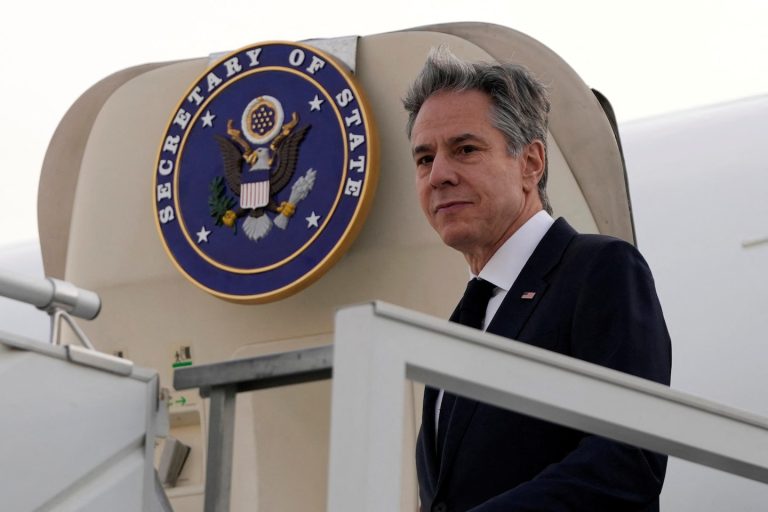“The United States does not want to see the conflict escalate” and “will not escalate the conflict,” a senior State Department official told reporters aboard Blinken’s plane en route to the Saudi capital.
Blinken's team says dozens of US strikes on militia targets on Friday were a proportionate response to the killing of three US service members in Jordan on January 28. Even as the White House pledges more retaliation in the coming days, “we don't see this as an escalation,” the official said.
“This is the response we said would happen if American soldiers were killed, and that's exactly what we're doing,” said the official, who spoke on condition of anonymity to discuss a sensitive topic.
The United States has refused to strike targets inside Iran despite calls to do so from many Republicans in Congress. Such a move would likely lead to bolder attacks on American personnel in the region.
Yemen's Houthis, allied with Iran, said they would continue to target commercial ships and fire on US assets until a ceasefire is agreed in Gaza, where more than 25,000 Palestinians were killed after the Hamas crossing on October 7. An attack on the border in Israel killed more than 1,200 people. US-led strikes in Yemen over the weekend targeted weapons caches, missile launch sites and radar equipment used by the Houthis to launch attacks in the Red Sea and Gulf of Aden, officials said.
The connection between the Israeli conflict and retaliatory attacks has not been lost on US officials, which is why Blinken is seeking to advance a potential hostage deal between Hamas and Israel. Efforts will include a cessation of hostilities, which Washington hopes will develop into a permanent ceasefire.
Senior American officials said: “It is not a coincidence that we are going to the three countries participating in those talks: Egypt, Qatar, and Israel,” referring to the next three stops on the trip.
He added: “It is impossible to say if we will achieve a breakthrough, when we will achieve a breakthrough.”
Hamas has not yet provided an official response to the framework agreement reached in Paris between the intelligence chiefs of the United States, Egypt, and Israel in coordination with the Qatari Prime Minister. The proposal includes a cessation of hostilities for a period of six weeks in exchange for the release of the hostages in stages.
Hamas previously said the next hostage deal must involve a permanent ceasefire — a condition rejected by Israeli Prime Minister Benjamin Netanyahu, who vowed to continue fighting until “total victory.”
Blinken's trip is his fifth to the Middle East since the start of the Gaza war. During his visits, he attempted to develop long-term post-war planning that seeks to forge an agreement between Arab and Israeli officials on a unified, Palestinian-led governing body for the West Bank and Gaza Strip.
If a cessation of hostilities is reached and Hamas can be removed from power – which is a big deal – Blinken will need Washington's Arab allies to help put in place a new governance structure. This will require a complex set of steps, including a multi-billion-dollar reconstruction effort funded by energy-rich Gulf states; Palestinian Authority reforms, including an infusion of young leaders working alongside Mahmoud Abbas, the authority’s 88-year-old president; An agreed path to establish a Palestinian state; And normalizing relations between Israel and Saudi Arabia.
“If we get a humanitarian truce, we want to be in a position to move as quickly as possible on the different parts,” the senior US official said.
The Israeli army is expected to expand its campaign in the southern city of Rafah, where more than a million displaced Palestinians have taken refuge in what the United Nations calls “the pressure cooker of despair.” campaign.
The Israeli army is expected to expand its campaign in the southern city of Rafah, where more than a million displaced Palestinians have taken refuge in what the United Nations calls “the pressure cooker of despair.”
Israeli officials had promised their American counterparts to end “accelerated” military operations by the end of January – a promise that was not fulfilled as the heavy bombing continued. The Biden administration has resisted calls to put pressure on the Israelis by placing conditions on US arms transfers or withholding military aid. In the absence of such moves, American officials say the best way to influence Israeli behavior is through direct meetings.
The senior American official said: “To get real breakthroughs… the minister must attend or the president must phone the prime minister.” “So when we come to Israel, we bring a list of things that we try to push.”

